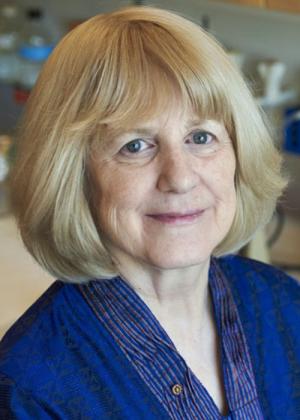Long before scientists completed mapping the human genome in 2003, geneticist Mary-Claire King discovered BRCA1, the first gene for a hereditary form of breast cancer.
That feat in 1990 helped explain why some women who carried mutations in this gene saw their lifetime risk for developing breast cancer rise from 8% to over 80%. Although Dr. King and her colleagues at the University of California, Berkeley, did not clone the gene, they laid the groundwork for genetically testing at-risk women for BRCA1 to reduce or prevent malignancies from developing.
The arduous hunt for a genetic link in breast cancer took 17 years to complete. It began in the early 1970s when NCI allowed Dr. King to add a question on family history to its epidemiological study on oral contraceptives and breast cancer risk. Accessing data on over 1,500 women with breast cancer and comparing it to 1,500 cancer-free women enabled her to develop a statistical model supporting the hypothesis that errors in one or more dominantly inherited genes in families accounted for their higher disease risk.
In 1995, scientists identified a second breast-cancer gene, BRCA2, and showed that women inheriting mutations in this or BRCA1 have increased susceptibility to breast and ovarian cancers. Preventive solutions involving prophylactic removal of the breasts or ovaries and fallopian tubes to cut cancer risk have been described by Dr. King as “not pretty,” but she supports widespread genetic screening to save women’s lives.
The cancer death of a childhood friend led in part to her decision to pursue a career in cancer research. Ever since, she’s been at the forefront of genetic discoveries, including helping to demonstrate that humans and chimpanzees share 99% of their DNA, and for applying DNA gene sequencing techniques to identifying victims of human rights abuses.
Learn more about Dr. King at her most recent award at: Gairdner.

